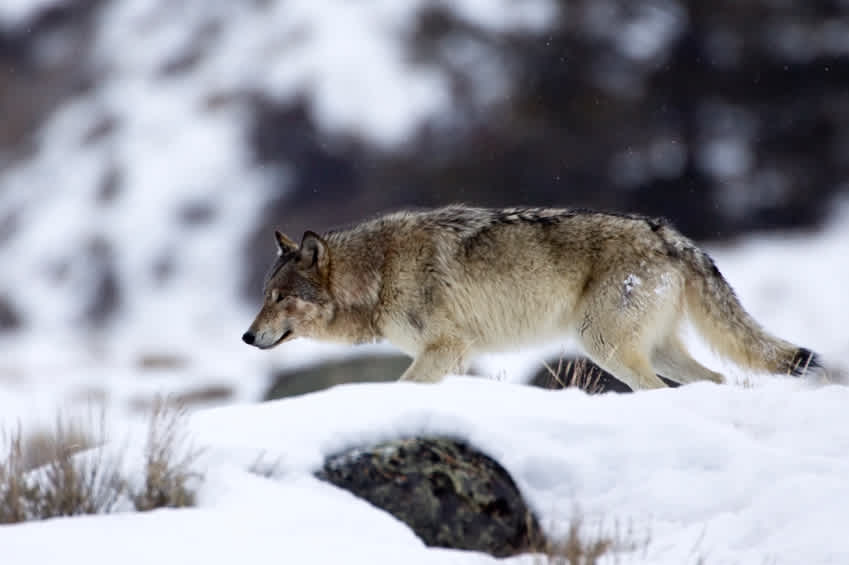Wisconsin Sportsmen and Women Voice Concerns about Wolf Season as Permit Application Date Approaches
OutdoorHub Reporters 07.26.12

Opposition to wolf hunting seasons throughout the United States has no doubt been heard by anti-hunting organizations, but some of the most recent complaints stemmed from hunters themselves. In Wisconsin, some sportsmen and women fear that the regulations put in place by the Wisconsin Legislature do not adequately address all of their concerns.
When the wolf was federally delisted as a protected species under the Endangered Species Act in January, management of the animal returned to individual states. State legislatures were then required to take the necessary steps to allow for public wolf harvest and management. It was not a mandated requirement to enact a wolf hunting and trapping season immediately following the delisting, but demand from farmers, landowners and other persons who believe the population is too high expedited the process.
Wisconsin’s original plan recommended a lag of several years between delisting and a public hunting season. In the meantime, farmers and landowners would be issued permits to be able to protect their assets, while wildlife agents would cull problem predators.
However, this method was not pursued. Wolf hunting and trapping by the general public was legalized in Wisconsin under Act 169, which specifies season dates (October 15 to end of February), allows the use of bait, allows night hunting and the use of dogs to hunt wolves.
Grouse hunter William Andrews fears for his dog and others if they join in the hunt for wolves, as the beginning of the wolf season corresponds with the ideal time to take ruffed grouse in Wisconsin.
“Please do not allow the use of leg traps for wolf hunting during grouse and woodcock hunting season,” Andrews said to the Milwaukee – Wisconsin Journal Sentinel. “I can’t imagine the possibility of a beautiful bird hunting dog having a leg caught in a wolf trap.”
Others have raised concerns about the quality of the wolf pelt at the time of year that hunting is allowed. They say the pelt is often at its prime later in the year.
Baiting has also spawned significant debate. Most pressing is the fear that habituating wolves on human-placed food will be dangerous, along with the other common criticisms of baiting being “unsportsmanlike”.
Wisconsin is the only state to allow dogs as an aid in wolf hunting. Dick Thiel, the former leader of the state’s wolf program and head of the Learn To Hunt program at the Sandhill Wildlife Area, has warned that using dogs to hunt wolves could have “unintended consequences”.
In sum, critics of the season as it currently laid out are concerned that representatives from the scientific and hunting communities were not given enough say in the final decisions about the hunt to ensure a well-managed and well-planned opportunity for sportsmen and women of all pursuits.
Nevertheless, the first hunting season will continue and hunters are encouraged to apply for permits beginning August 1. Even if a hunter cannot hunt this season, he or she is still encouraged to apply for preference points for future lotteries to guarantee a tag then.

